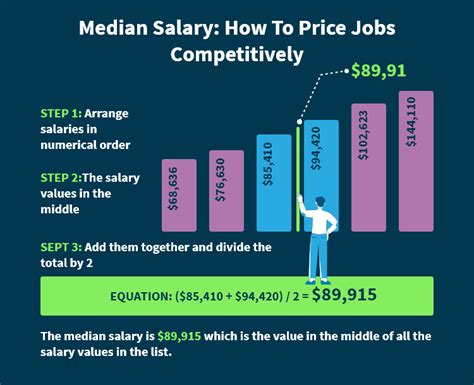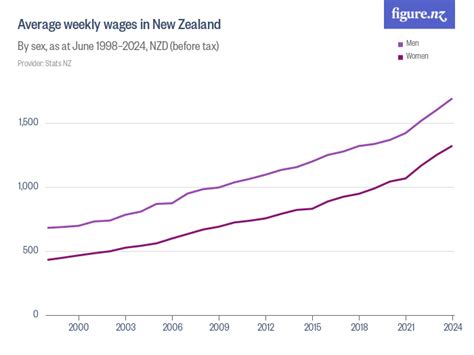Considering a career move to Aotearoa New Zealand? Understanding the country's salary landscape is a critical first step. With its high quality of life, stunning natural beauty, and robust economy, New Zealand offers significant opportunities. But what can you realistically expect to earn?
While a single "average" figure provides a useful benchmark, your actual income will be shaped by your industry, experience, location, and qualifications. This guide breaks down the latest salary data to give you a clear and realistic picture of earning potential across New Zealand.
Understanding the Numbers: What Does the Average Salary Mean?

Before diving into the figures, it's important to understand what "average salary" means. It's often discussed in two ways:
- Mean Average: This is calculated by adding all salaries in the country together and dividing by the number of workers. This figure can be skewed upwards by a small number of very high earners.
- Median Average: This is the midpoint of all salaries. Half of the working population earns more than the median, and half earns less. Many economists consider the median a more accurate representation of the typical worker's earnings.
When you see salary data, it's helpful to know which metric is being used. For this article, we will refer to both to provide a complete picture.
The Average Salary in New Zealand: The Latest Figures

So, what do professionals earn in New Zealand? The data provides a strong starting point.
According to Stats NZ (Tatauranga Aotearoa), the country's official data agency, the most recent figures from the Quarterly Employment Survey show:
- The average ordinary time weekly earnings were NZ$1,588 as of the December 2023 quarter. This translates to an annual average salary of approximately NZ$82,576.
Salary aggregators provide slightly different figures based on their own data sets:
- Payscale reports an average base salary of NZ$70,000 per year as of May 2024.
- Glassdoor reports a similar median base pay of NZ$71,000 per year.
The typical salary range in New Zealand is vast. Entry-level positions or roles in lower-paying sectors might start near the minimum wage (currently NZ$23.15 per hour), while experienced professionals in high-demand fields can easily command salaries well into the six figures.
Key Factors That Influence Salary

Your personal earning potential will vary significantly based on several key factors. Understanding these will help you negotiate your salary and plan your career trajectory.
### Level of Education
In New Zealand, as in most developed economies, there is a strong correlation between educational attainment and income. Individuals with higher formal qualifications generally have higher earning potential.
- No Qualification: Workers with no formal qualification have the lowest median hourly earnings.
- Vocational Diplomas & Certificates: These qualifications, particularly in skilled trades like construction, electrical, and engineering, provide a significant earnings boost over no qualifications.
- Bachelor's Degree: This is often the gateway to professional roles and higher-paying industries like IT, finance, and management. Median earnings for degree-holders are substantially higher than for those without.
- Postgraduate Degrees (Master's, PhD): Advanced degrees open doors to specialized, senior, and research-focused roles that command top-tier salaries.
### Years of Experience
Experience is one of the most powerful drivers of salary growth. Employers pay a premium for proven skills and a track record of success.
- Entry-Level (0-2 years): Professionals at the start of their career can expect to earn on the lower end of the salary scale for their role as they build foundational skills.
- Mid-Career (3-8 years): With several years of experience, professionals can take on more responsibility, leading to significant salary increases. This is often where individuals see the fastest growth in their earnings.
- Senior/Managerial (8+ years): Senior practitioners, team leaders, and managers are compensated for their deep expertise, strategic input, and leadership responsibilities, placing them in the highest income brackets. A senior professional can often earn 50-100% more than their entry-level counterpart.
### Geographic Location
Where you work in New Zealand has a major impact on your salary, largely due to differences in the cost of living and the concentration of certain industries.
- Auckland: As New Zealand's largest city and economic hub, Auckland typically offers the highest salaries. This is driven by a high concentration of corporate headquarters, tech companies, and financial services firms. However, it also has the highest cost of living.
- Wellington: The nation's capital has a strong public sector and a booming tech and creative industry. Salaries in Wellington are highly competitive and are often the second-highest in the country.
- Christchurch: As the largest city in the South Island, Christchurch has a strong economy centered on manufacturing, agriculture, and technology, with salaries that are generally above the national average but lower than in Auckland or Wellington.
- Regional Areas: Salaries in smaller cities and regional areas are typically lower, reflecting a lower cost of living and a different mix of local industries.
### Company Type and Industry
The type of company you work for and the industry it operates in are crucial salary determinants.
- Industry: Sectors like Information Technology, Finance, Engineering, and Health Services consistently rank among the highest-paying. Industries like Retail, Hospitality, and Tourism tend to be on the lower end of the pay scale.
- Company Size: Large multinational corporations (MNCs) often have more structured and generous compensation packages compared to small and medium-sized enterprises (SMEs).
- Ownership: Public sector (government) roles often offer strong job security and benefits, with competitive salaries, particularly in Wellington. Private sector salaries can have a wider range, with the potential for higher earnings and bonuses in high-performance industries.
### Area of Specialization
Within any given field, specialization matters. Niche skills and in-demand expertise command a premium. For example, within the IT industry:
- A Cybersecurity Specialist or AI/Machine Learning Engineer will typically earn significantly more than a generalist IT support technician due to the high demand and scarcity of their skills.
- Similarly, in healthcare, a Surgical Specialist will have a much higher income than a general practitioner.
Focusing on developing in-demand, specialized skills is a proven strategy for maximizing your earning potential.
Job Outlook

The job outlook for New Zealand remains positive, driven by a stable economy and specific skills shortages. The Ministry of Business, Innovation and Employment (MBIE) regularly publishes projections on labour market trends.
- High-Growth Sectors: MBIE forecasts strong future demand for workers in highly skilled sectors, including Technology, Construction (especially skilled trades and managers), Engineering, and Health and Social Services.
- Skills Shortage: New Zealand has official "Skills Shortage Lists" that identify occupations in high demand. Professionals with skills on these lists (e.g., specific types of engineers, IT professionals, medical staff, and tradespeople) will find excellent job prospects and strong salary negotiation power.
- Unemployment Rate: New Zealand has historically maintained a low unemployment rate, indicating a healthy and resilient job market for skilled individuals.
This positive outlook suggests that for professionals with the right skills and experience, New Zealand will continue to be a land of opportunity.
Conclusion

The average salary in New Zealand provides a solid starting point for your research, with figures clustering around NZ$70,000 to NZ$83,000 per year. However, this number is just a benchmark. Your ultimate earning potential is a dynamic figure influenced by your personal and professional profile.
To maximize your salary in New Zealand, focus on:
- Gaining relevant qualifications and continually upskilling.
- Building a strong track record of professional experience.
- Targeting high-growth industries and in-demand specializations.
- Understanding the regional salary differences, especially in hubs like Auckland and Wellington.
By strategically developing your career, you can position yourself to not only meet but exceed the average salary, building a prosperous and rewarding professional life in New Zealand.
